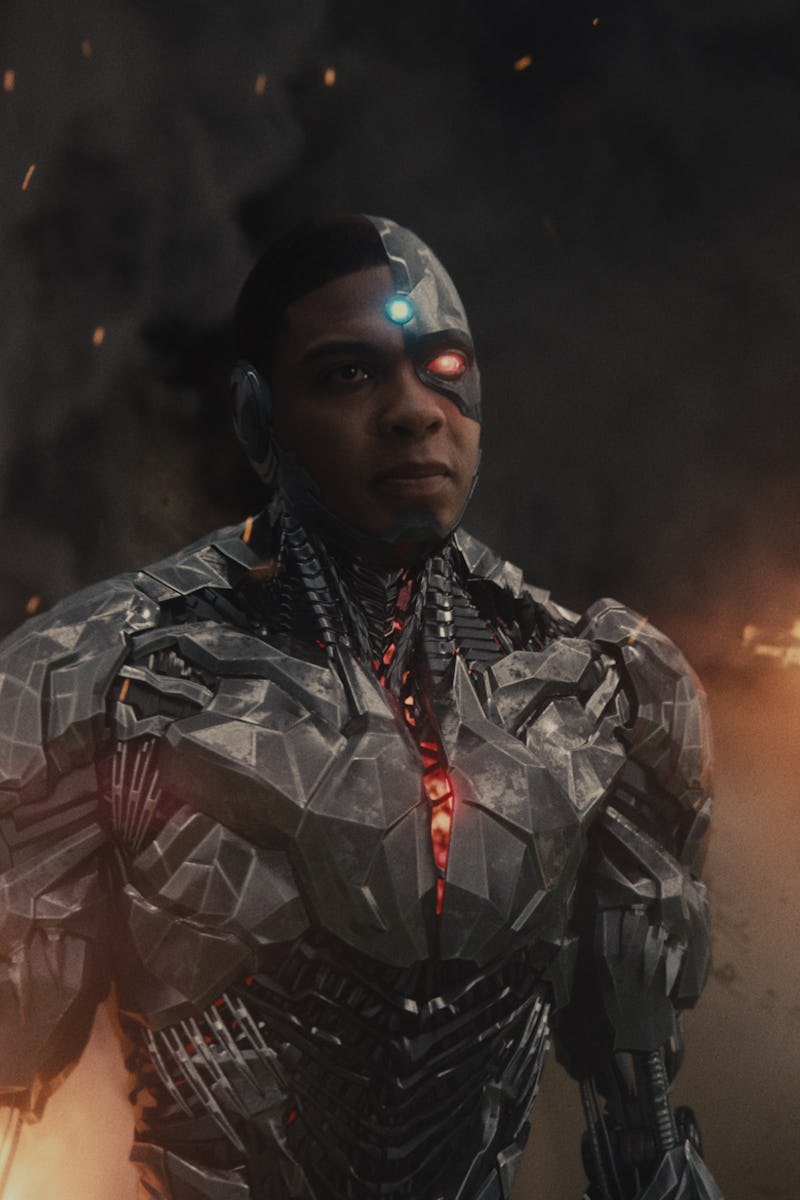
“We’re all at your mercy, Vic.”
The Snyder Cut's best moment reveals a huge flaw in all superhero movies
In 'Zack Snyder's Justice League' on HBO Max, a selfless act by Ray Fisher's Cyborg highlights how out of touch superheroes in movies have become.
by Eric FranciscoIt doesn’t take much to be a hero. Especially these days, a small act of kindness goes a long way. But today’s superhero movies are so often staked on unwieldy things like the survival of the human race (or the planet, or the timeline, or reality itself) that superhero movies forget to let their characters actually be heroes.
Zack Snyder’s Justice League doesn’t forget. Snyder keeps his eye firmly on the heroic prize in one of the quietest scenes of the very loud (and very long) movie — a scene that’s vital not just to the Snyder Cut, but for the superhero genre at large.
Warning: Minor spoilers for Zack Snyder’s Justice League ahead.
Justice League and Cyborg
One of the biggest changes from the 2017 theatrical Justice League to Zack Snyder’s Justice League is the expanded role of Ray Fisher as Cyborg. While little more than a bit player in the theatrical Justice League, Snyder’s version lets audiences have more time to not only empathize with Cyborg but deem him a worthy member of this elite superhero team.
In Justice League, Victor Stone (Fisher) is a college football star left on death’s doorstep after a near-fatal car accident. Fearing he will lose his son, scientist Dr. Silas Stone (Joe Morton) uses powerful alien technology to turn Victor into a living, breathing supercomputer.
Dr. Silas Stone (Joe Morton) uses a Mother Box to save his son, Victor (Ray Fisher). The end result is a half-man, half-machine called Cyborg.
In a world ruled by technology and data, Cyborg is perhaps more powerful than any Dark Knight or Man of Steel. As Victor’s father tells him (in a surprisingly primitive tape recording): “In a world of ones and zeroes, you are the absolute master. No firewall can stop you. No encryption can defy you. We’re all at your mercy, Vic.”
Through an elaborate exposition sequence (evocative of Doctor Manhattan’s origin story from Alan Moore and Dave Gibbons’ Watchmen), the full might of Cyborg’s techno-based superpowers are demonstrated, like his control of nuclear weapons and the worldwide financial system. But as Victor’s father warns him, the true test is how Cyborg chooses to wield his abilities.
The “how” comes into focus in one of the most impressive scenes in the movie, not to mention the superhero genre at large. Cyborg observes a working single mother (played by Amanda Maud) with two kids and an $11 bank account. With a simple gesture, Cyborg alters her account, lifting her out of poverty with the same ease we pick up a TV remote.
Zack Snyder redefines the superhero
This scene with Cyborg, featuring a simple act of heroism, is brief, but impossibly powerful. It’s particularly resonant now, amid widespread poverty spikes during a pandemic. And it’s also the kind of thing you rarely see in modern superhero movies.
Think about it. It’s a CGI-heavy hero exhibiting strength, not by punching a villain, not even by helping a civilian escape the rubble of a battlefield. Just ... helping, full-stop.
Cinematic superheroes are so often forced to fight oversized monsters in empty parking lots that they don’t even bother with the problems of regular people. So when they do, it’s particularly meaningful.
As always, there are exceptions to the rule. For instance, the upbeat opening montage in Spider-Man: Homecoming, where Spider-Man swings through Queens to help old ladies navigate the neighborhood or backflip when a fan asks, is genuinely one of the best moments in the Marvel Cinematic Universe. Making people happy, asking folks on the subway “Everybody good?” isn’t just something Spider-Man would do. It’s what all superheroes should do.
It’s not that these scenes don’t exist, but they are few and far between — and the Cyborg scene is just so good, I can’t help lamenting not seeing more like it.
There is, fittingly, a richness to this moment. Poverty is not indicative of one’s character. Cyborg knows Linda is a good person, she’s just cursed with bad luck. She’s a loving mother to two kids and gives up what little she has to someone even poorer. She’s deserving of kindness, and, being the hero he is, Cyborg helps her without even asking for a thank you.
Cyborg doesn’t expect any recognition for this, an act that amounted to literally lifting his fingers, any more than the woman expects a reward for reaching into her pockets for change. It’s a small moment — but in these kinds of movies, they make a world of difference.
Zack Snyder’s Justice League is streaming on HBO Max now.
This article was originally published on